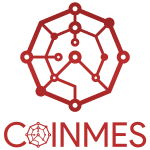The concept of NFTs is not new. However, it is still relatively unknown to the general public. In recent years, NFTs have gained immense popularity, and they are now being used in a wide range of industries. One of the sectors that are exploring the potential of NFTs is the luxury goods market. In this article, we will explore how NFTs can revolutionize the luxury goods market.
What are NFTs?
NFTs are digital assets that represent ownership of a unique item or asset. These assets are stored on a blockchain, which is a decentralized and distributed ledger that records transactions. NFTs can be used to represent a wide range of assets, including art, music, videos, and even tweets.
The Potential of NFTs in Luxury Goods Market
The luxury goods market is all about exclusivity and uniqueness. NFTs provide an opportunity for luxury goods companies to create unique digital assets that can be sold to customers. These assets can include digital artwork, virtual reality experiences, and even virtual fashion items.
1. Digital Artwork
Digital art has been gaining popularity in recent years. NFTs provide an opportunity for artists to create and sell their artwork as unique digital assets. This can provide a new revenue stream for artists and can also increase the value of their artwork.
2. Virtual Reality Experiences
Virtual reality is becoming increasingly popular, and luxury goods companies can use NFTs to create unique virtual reality experiences for customers. These experiences can include virtual fashion shows, virtual tours of luxury hotels, and even virtual tours of luxury yachts.
3. Virtual Fashion Items
Virtual fashion items are another potential use case for NFTs in the luxury goods market. Luxury goods companies can create virtual fashion items that can be worn in virtual reality experiences. These items can include digital watches, digital jewelry, and even digital clothing.
The Benefits of NFTs in Luxury Goods Market
NFTs provide several benefits for luxury goods companies. These benefits include:
1. Exclusivity
NFTs provide an opportunity for luxury goods companies to create unique and exclusive digital assets that can be sold to customers. This can increase the value of their products and make them more desirable to customers.
2. Additional Revenue Stream
NFTs provide a new revenue stream for luxury goods companies. They can create digital assets that can be sold to customers, providing an additional source of income.
3. Increased Brand Awareness
NFTs can help to increase brand awareness for luxury goods companies. By creating unique and exclusive digital assets, luxury goods companies can generate buzz and interest around their brand.
Use Cases for NFTs in Luxury Goods Market
NFTs can be used in a wide range of ways in the luxury goods market. Here are some potential use cases:
- Virtual fashion items: Luxury goods companies can create virtual fashion items that can be sold as NFTs. These items could be used in virtual reality experiences or as part of a wider digital fashion ecosystem.
- Digital artwork: Luxury goods companies can create and sell digital artwork as NFTs. This artwork could be displayed in virtual galleries or used in digital marketing campaigns.
- Virtual reality experiences: Luxury goods companies can create exclusive virtual reality experiences and sell access to them as NFTs. These experiences could be used to promote new products or to provide customers with an immersive brand experience.
Challenges and Risks of NFTs in Luxury Goods Market
- Counterfeiting risk: As NFTs are digital assets, they can be easily replicated by others, leading to a dilution of the value of the original asset.
- Lack of regulation: NFTs are a relatively new concept, and there is little regulation surrounding their use in the luxury goods market. This makes it difficult for luxury goods companies to ensure that their NFTs are being sold and traded legally.
- Technical challenges: NFTs require a certain level of technical expertise to create and manage, which can pose a challenge for luxury goods companies that may not have the necessary technical skills in-house.
- Environmental concerns: The energy consumption associated with blockchain technology, which is used to create and trade NFTs, is a concern for many people. This may pose a reputational risk for luxury goods companies that use NFTs in their businesses.
- Security concerns: As NFTs are digital assets, they are vulnerable to cyber attacks and theft. This poses a risk to both the luxury goods companies that create NFTs and the customers who purchase them.
- Potential for market volatility: The value of NFTs can be highly volatile, which poses a risk for luxury goods companies that use NFTs as a revenue stream. Market volatility can also negatively impact the perceived value of NFTs in the eyes of customers.
NFTs and Sustainability

Another aspect of NFTs that is important to consider is their impact on sustainability. The energy consumption associated with blockchain technology, which is used to create and trade NFTs, is a concern for many people. The energy consumption required for mining and verifying transactions on a blockchain can be significant, and this has led to criticism of NFTs and their impact on the environment.
However, some argue that NFTs can actually be more sustainable than physical luxury goods. Physical luxury goods often have a significant environmental impact, both in terms of their production and transportation. In contrast, NFTs are digital and do not have the same impact on the environment.
Furthermore, some NFT marketplaces and creators are taking steps to address the sustainability concerns associated with NFTs. For example, some marketplaces are using renewable energy sources to power their operations, and some creators are donating a portion of their NFT sales to environmental causes.
Marketing Opportunities with NFTs in Luxury Goods Market
NFTs offer several marketing opportunities for luxury goods companies. By creating exclusive and unique digital assets, luxury goods companies can generate buzz and excitement around their brand. NFTs can be used to launch new products, promote brand collaborations, and offer limited-edition products to customers.
Furthermore, the transparency and authenticity offered by NFTs can help build customer trust. Customers can be assured that they are purchasing a genuine and exclusive digital asset, which can increase the perceived value of the product.
NFTs and Personalization
NFTs can also be used to provide personalized experiences for customers. Luxury goods companies can create customized digital assets that reflect the individual tastes and preferences of their customers. This can be a powerful way to build brand loyalty and create a sense of exclusivity for customers.
Additionally, NFTs can be used to reward loyal customers. By creating NFTs that are exclusive to a specific group of customers, luxury goods companies can show their appreciation and create a sense of exclusivity and VIP treatment.
The Role of Blockchain Technology in NFTs
NFTs are created using blockchain technology, which offers several benefits over traditional forms of digital ownership. Blockchain technology provides a secure and decentralized way to verify ownership and transfer of digital assets. This can help to prevent fraud and ensure that the digital asset is authentic.
Additionally, blockchain technology provides transparency and immutability, which can help to build trust with customers. Customers can be assured that the NFT they are purchasing is unique and authentic, and that the ownership and transaction history of the NFT can be verified on the blockchain.
NFTs and the Future of Luxury Goods Market
NFTs have the potential to transform the luxury goods market completely. By creating unique and exclusive digital assets, luxury goods companies can increase their brand awareness and generate additional revenue streams. Additionally, NFTs can help to address the sustainability concerns associated with physical luxury goods.
As the technology and regulatory environment continue to evolve, we can expect to see more luxury goods companies exploring the potential of NFTs in their businesses. NFTs have the potential to revolutionize the way we think about ownership and value, and they could become a new asset class in the future.
Conclusion
NFTs are a new and exciting concept that is already having a significant impact on the luxury goods market. While there are some challenges and risks associated with their use, the potential benefits are too great to ignore. As the popularity of NFTs continues to grow, we can expect to see more luxury goods companies exploring the potential of NFTs in their businesses. NFTs have the potential to revolutionize the luxury goods market and take it to the next level of exclusivity, uniqueness, and sustainability.
FAQs
- What are NFTs?
NFTs are digital assets that represent ownership of a unique item or asset. - What is the luxury goods market?
The luxury goods market is a sector that is associated with high-end products and exclusivity. - What are the potential benefits of NFTs in luxury goods?
NFTs can provide an opportunity for luxury goods companies to create exclusive and unique digital assets, increase brand awareness, and generate additional revenue streams. - How can luxury goods companies use NFTs?
Luxury goods companies can use NFTs to create digital artwork, virtual reality experiences, and virtual fashion items that can be sold to customers. - Are there any challenges associated with using NFTs in luxury goods?
One of the challenges of using NFTs in luxury goods is the potential for counterfeiting. Luxury goods companies must ensure that their digital assets are unique and cannot be replicated by others.
I have over 10 years of experience in the field of cryptocurrency and have written numerous books on the subject. I am a highly sought-after speaker and consultant on all things crypto, and my work has been featured in major media outlets such as The Wall Street Journal, CNBC, and Forbes. I am also a regular contributor to CoinDesk, one of the leading publications in the space. In addition to my writing and consulting work, I am also an advisor for several blockchain startups.

